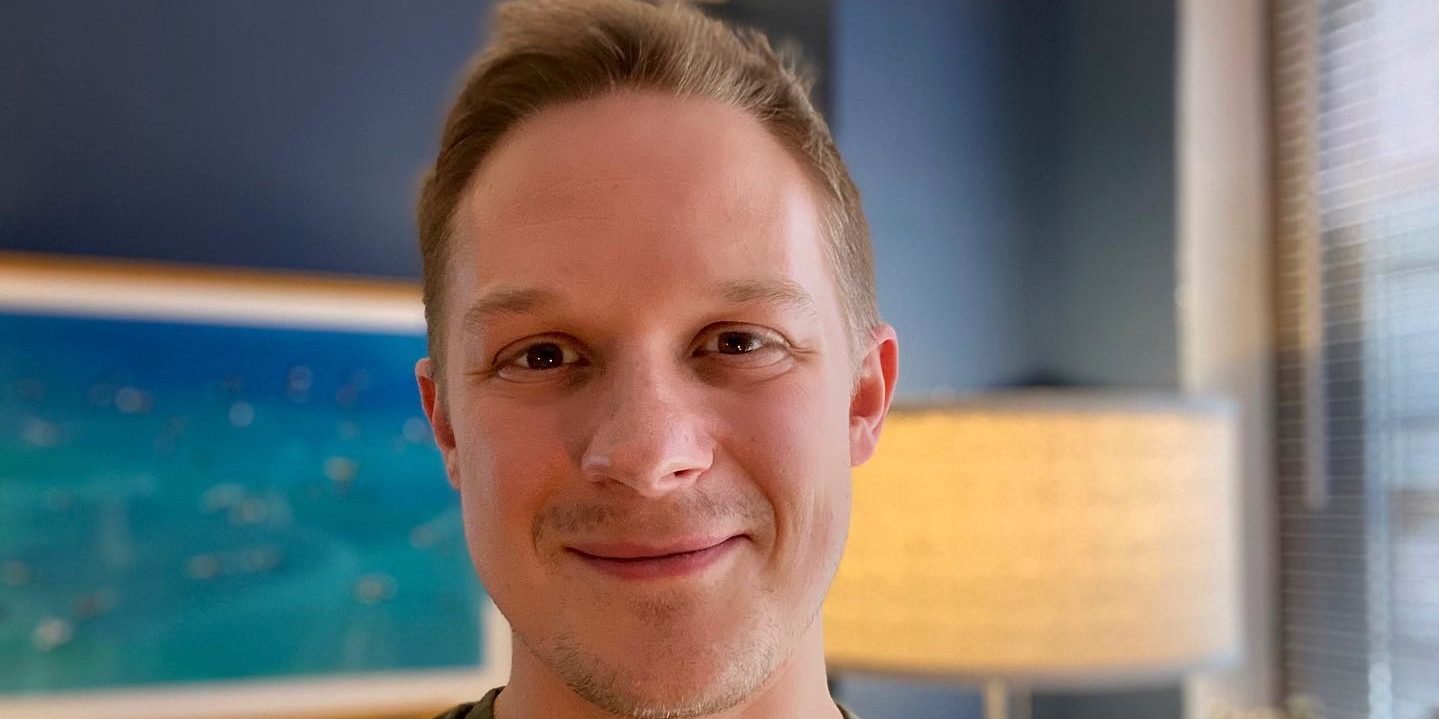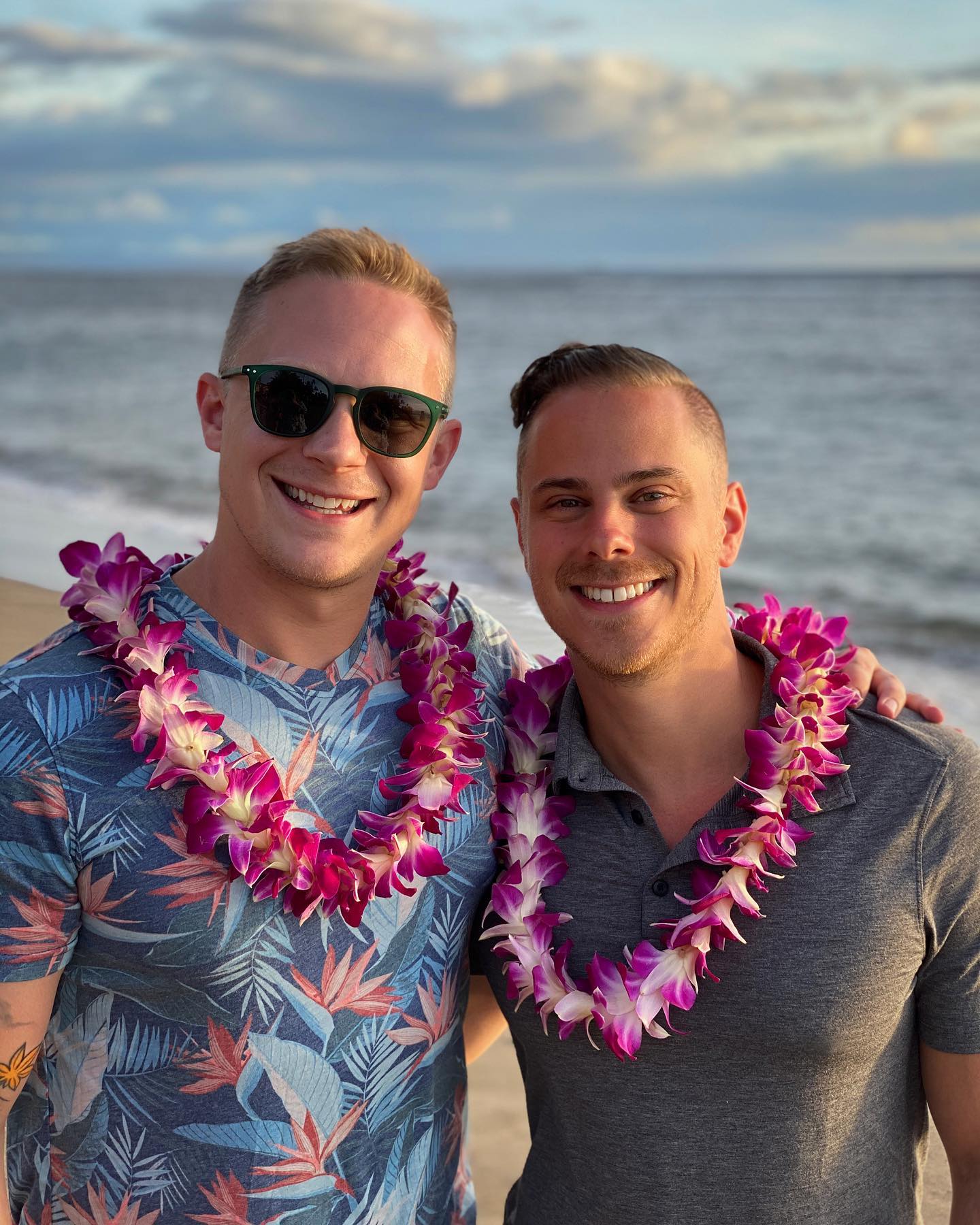The ban towards gay men donating blood from the 1980’s remains a polarizing conversation and an antiquated policy in our country. As our country tries to crawl out a pandemic that has impacted our health and economy in insurmountable ways, more and more people who have been afflicted by the COVID-19 virus are looking to donate their much needed plasma, rich in antibodies. New York City entrepreneur Lukus Estok initially thought and was told that he was a prime candidate, but when he arrived to donate, he was stunned that after stating that he was gay, he was firmly told “you will not be donating”. Since the days of ACT UP fighting the ban and for medical research in the streets, the gay community has had to fight to donate blood, and Estok has now joined this fight wholeheartedly. I sat down to speak with Lukus about his experience with COVID-19, what it was like to be turned away from donating, and why he wants “science not stigma to determine donor qualifications”.

Michael Cook: First off, how are you feeling post COVID-19 and how is quarantine for you?
Lukus Estok: I’ve been as well as can be. My husband and I are grateful to be safe, healthy, and employed. We’re getting out of doors really only on the weekends, aside from short walks with our dog Charlie. He’s enjoyed the distanced patches of grass we’ve been able to stake out. Still, the psychological affect of all of this sits just below the surface. Having had the opportunity to speak out, and be heard, during a global health crisis has been an indescribable experience. I’m really grateful. It’s all kept me pretty busy and ultimately helped me stay a little more even-keeled.
MC: What was the experience of COVID-19 like for you?
LE: COVID-19 was truly challenging. I’ve never been sick like that in my life. A near-constant fever for two weeks. Loss of taste and smell, chills and sweats, body aches, & disturbing dreams and thoughts. Ultimately a dry cough which transformed overnight into an upper respiratory infection; viral pneumonia. It’s felt as if I’d never possibly get better again, until one day I did just a little. At the end of about three and a half weeks, symptomatic, I felt like I was back at full strength.
https://www.instagram.com/p/B_sYkA4Bcvd/?utm_source=ig_web_copy_link
MC: Were you initially shocked when you were told you could not donate blood?
LE: I really was shocked when I was refused so suddenly and publicly. As far as I was concerned, I had passed multiple rounds of screening questions. I was three months celibate. I had been invited to donate; labeled a prime candidate. Even though I knew, in my heart of hearts, that it had less to do with public policy and everything to do with who I was. I was still shocked that it was happening; in New York City. In the year 2020. During a global health crisis. Entering the blood center, I had to open a large door which had a banner plastered across it; big words reading “EMERGENCY BLOOD SHORTAGE”. I mean, What the fuck?!
https://www.instagram.com/p/B_XYLGaBDVl/?utm_source=ig_web_copy_link
MC: When you were told you could not donate, how did you feel?
LE: I felt shocked, angry, embarrassed, and ultimately deflated. I went through a month of hell with this virus. Here I am, a qualified “prime” candidate, trying to help people who have it even worse than I did-and I’m turned away. For what, administrative issues? This virus hit us fast. If you’re telling me that we aren’t prepared to immediately accept qualified help when it is available, then we are absolutely nowhere. All donated blood is tested for HIV regardless of the donor. Medical technology has advanced since the the 80s. We can test for HIV in the bloodstream in as soon as ten days. Risk based assessments absolutely make sense; not painting one section of our culture with a broad brush of stigma. This is discrimination, plain and simple. We need science and not stigma to qualify eligible donors.

MC: What does it feel like to suddenly be the face to an issue that has been going on for far too long?
LE: It’s been surreal. The reaction to my Facebook post was entirely unexpected. That there’s any way my voice has been able to reach out, beyond the walls of our one bedroom apartment, I’ve been grateful for those opportunities. It makes me feel like I’m able help, at a time when it’s pretty easy to feel helpless.
I intend to continue pushing to end the ban. I’m adding my voice to the chorus of others who have been and continue pushing for this important lifesaving change. The response has allowed me to tap into something I have always wanted to do; advocate on behalf of others. What happened to me (and far worse) is happening to other queer people. Those stories are too often not told. So if there’s anything I can do to help shine a light on dark places, then I’m grateful for the opportunity.
MC: How did speaking out change the course and outcome of your experience?
LE: As a result of my post going viral, a lead nurse at Memorial Sloan Kettering Cancer Center saw it and contacted me. They invited me to participate in their convalescent plasma program. As an independent hospital, they elected to follow the FDA’s allowance for new policies to be enacted immediately; stating the urgent and immediate need for donations at this time. I was given an appointment, again passed all eligibility requirements with the reduced three month deferral, and donated. The staff was exceptional and I felt super comfortable with the entire experience. If I’m able, I intend to continue donating. Sure would be nice if they’d drop that deferral.
https://www.instagram.com/p/B96_0KEhpKN/?utm_source=ig_web_copy_link
MC: Why do you think the stigma still follows our community so many years after the onset of the AIDS epidemic?
LE: You don’t have to search far and wide for examples of outdated science and stigma taking root and infecting our cultural common sense. The “othering” in our society very much exists. We like to comfort ourselves with the progress that’s already been made, and some of that comfort is well earned. In times of crisis though, you see where the cracks in our foundation still exist.
https://www.instagram.com/p/B71wAPohPI5/?utm_source=ig_web_copy_link
MC: Has advocacy always been a part of who you are? What would you consider your passion projects or the ares that you are most passionate about and why?
LE: I’ve never had quite this type of platform before. I like to hope though, that this type of advocacy has always been a part of me. I hope that the people who know me well would say that I’m someone committed to speaking out about injustices.
I’m a COVID survivor, a married gay man, and a small business owner. Health and safety, and the way queer people are treated are of deep interest to me. At the moment, I’m committed to doing what I can to speak out about and push for the elimination of the existing deferral.
https://www.instagram.com/p/CAfz8GYBSl1/?utm_source=ig_web_copy_link
MC: What has your experience with COVID-19 taught you and do you think it will change your perspective on life going forward?
LE: I’m thirty six years old and COVID-19 gave me my first true glimpse at my own mortality. It’s taught me that I want to advocate for positive change. Right now, we could be saving actual lives. I’ve been able to place a face on the very real help we are turning away for no good reason; and that means we can continue getting responses. Like the one the FDA released recently, committing to a pilot program, exploring removing the ban in favor of risk assessment.
More data and information is always welcome, but we don’t need a pilot program. That’s backed up by the hundreds of medical professionals who have spoken, loud and clear, in an open-letter to the FDA started by Dr. Deborah Cohan, MD MPH, and Dr. Monica Hahn, MD, MPH.
This experience has reminded me never to doubt that groups of thoughtful and committed people can affect positive change. It’s the only thing that ever does. That kind of optimism feels quite welcome right now.
To Follow Lukus Estok Click Here
To Add Your Name To The HRC’s List Demanding That The FDA Change It’s Donation Policy Click Here

They are both super cute they were featured on a show called secret guide to fabulous a couple years ago on Logo… https://g.co/kgs/MpUJfU